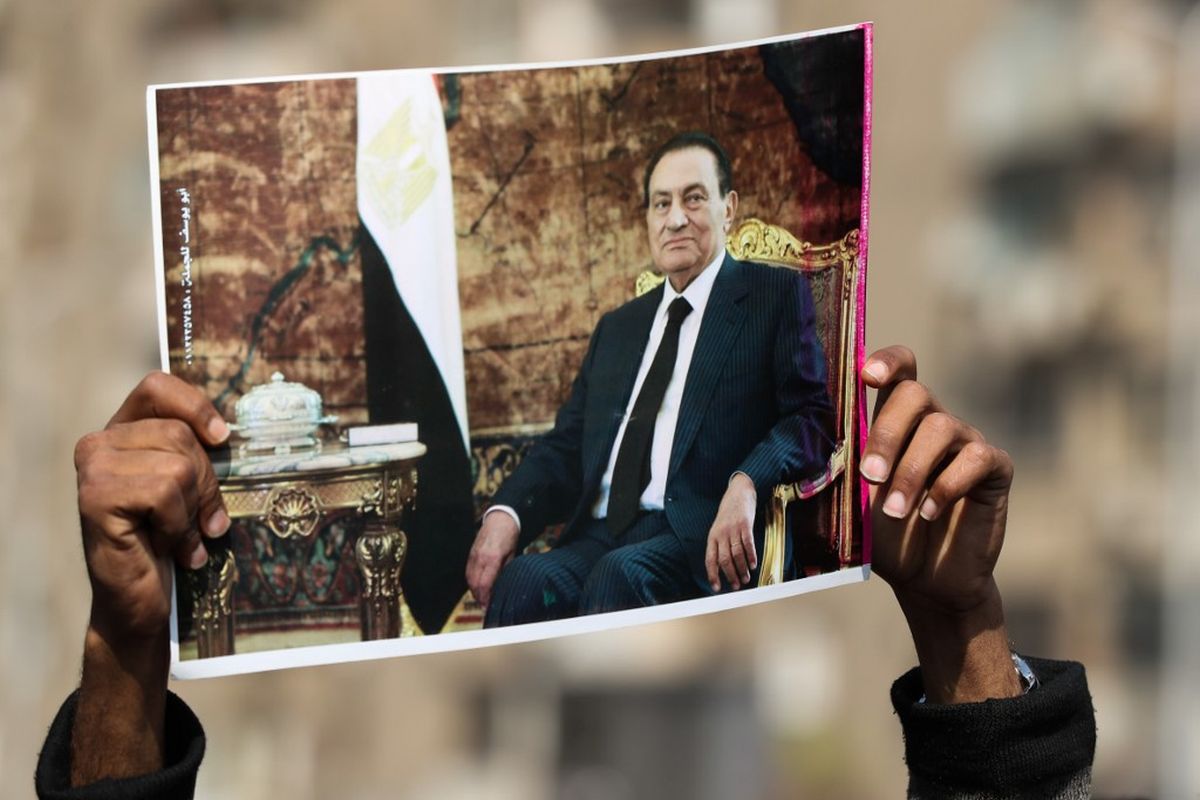It will be open to conjecture whether close to a decade after the ouster of Hosni Mubarak, Egypt has attained its “bread, freedom and social justice” and an end to military rule. Quite palpably it hasn’t on any of the four parameters and the country is still floundering in search of its moorings, as with several countries in the Arab world.
At his passing on Tuesday at the ripe old age of 91, it must be said Mubarak symbolised autocracy arguably at its most repressive. Indeed, the epitaph of the man can be as stark as that. Having assumed power in 1981 after the assassination of President Anwar Sadat, he became a symbol of what has been called “thuggish and brutal authority”. That perception is not merely of the comity of nations; it has been generally shared by Egyptians as well.
More accurately, Mubarak presided over a cruel police state and was said to have been aided and abetted by a network of crony military business enterprises. It would be no exaggeration to aver that his legacy, which purportedly met its eclipse in February 2011, still survives. The current dispensation of FieldMarshal Abdel Fatah al-Sisi is a faint echo of Mubarak’s praxis of leadership. His military record, however, must remain a striking feature of the Arab world, most importantly his performance in the 1973 war against Israel. An acknowledged leader and hero of the October war, he had assumed command of the air force during the war that restored dignity and pride to Egypt.
Over the years, the response of the West was generally qualified. He did benefit from the pump-priming by the United States, which helped Egypt with billions of dollars in military aid. In the perception of the State Department and the Pentagon, he was a bulwark against regional terrorism and a “key driver of cold peace” with Israel. At another remove, Mubarak’s record at home was appalling. For 30 years, he presided over and posited a country on the cusp of endemic unemployment, poverty and resentment against the lavish lifestyle within the presidential palace in Cairo.
He could barely contend with the rising tide of discontent despite such cosmetic changes as an independent bloc in Parliament ~ comprising Islamists ~ and limited press freedom. In January 2011, following the ouster of Tunisia’s longtime ruler in the first stirrings of the Arab Spring, protesters overtook Tahrir Square in Cairo and other major Egyptian cities demanding an end to the Mubarak regime.
His response had resulted in the deaths of at least 846 people. The change, as it now turns out, has been deceptive, even delusory. Regretfully, the legacy bequeathed by Hosni Mubarak has been enduring. This is the paradox of Egypt.











